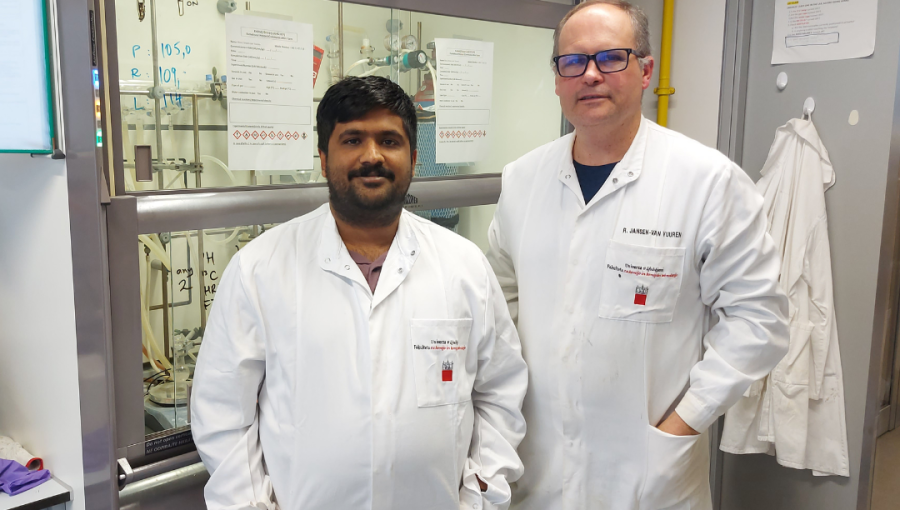Dr. Liju Raju is a recipient of the MSCA 2024 Postdoctoral Fellowship at UL FKKT

Rodolfo Clix/Pexels
Date of publication:
Dr. Liju Raju, post-doctoral researcher at the University of Ljubljana, has been awarded the prestigious Marie Skłodowska-Curie Action (MSCA) postdoctoral fellowship for his project CHITOCAT. The research work will be conducted at the Faculty of Chemistry and Chemical Technology under the mentorship of Dr. Ross Jansen van Vuuren.
His fellowship will involve the development of a recyclable biopolymeric support for catalysts to be used for the synthesis of deuterated compounds via continuous flow chemistry.
Deuterium-labelled organic compounds are special molecules in which hydrogen atoms are replaced with deuterium – a heavier form of hydrogen. Deuterated compounds are important in medicine, as they are often safer and more effective than their hydrogen-based counterparts. For example, deutetrabenazine, the first deuterated drug to be approved for commercial usage in 2017, requires half the dosage compared with its non-deuterated counterpart, tetrabenazine. Since then, five other deuterated compounds have been approved for commercial usage. Deuterated compounds are also used in many other applications such as helping doctors understand how drugs are metabolized, helping organic chemists understand reaction mechanisms, and are used in many functional materials e.g., to increase the lifetime and brightness of light emitters such as the materials used in LG Display’s 2nd Gen OLED TVs.
Despite their usefulness, methods for making deuterium-labelled compounds involve wasteful and inefficient processes, prompting scientists to search for greener, more sustainable alternatives. For example, most methods involve the use of expensive and rare catalysts which are disposed of after use. Our strategy involves attaching a well-known catalyst to a solid biopolymer so that the immobilized catalyst can be reused in multiple reactions. The biopolymers in this case will be waste from the seafood industry, and the recovery process will involve breaking down the biopolymer in an environmentally friendly way, ensuring that both the expensive catalyst and the support material can be reused efficiently. Our method also offers an option for scaling up the process (e.g., to the kg scale), and will ultimately be tested on an industrial scale to ensure its practical application for producing deuterated drugs.
He will be co-hosted by Assist. Prof. Maksim Ošeka at Tallinn University of Technology (Estonia) and – for his industrial placement, by Dr. Volker Derdau (Head of Isotope Chemistry at Sanofi, Germany).
Dr Liju Raju is currently a postdoctoral fellow with Dr Ross Jansen van Vuuren at the UL FKKT and will join as MSCA postdoctoral fellow starting from August 2025. Dr Liju Raju earned his doctorate in Chemistry from Madras Christian College, University of Madras, India in 2024.


